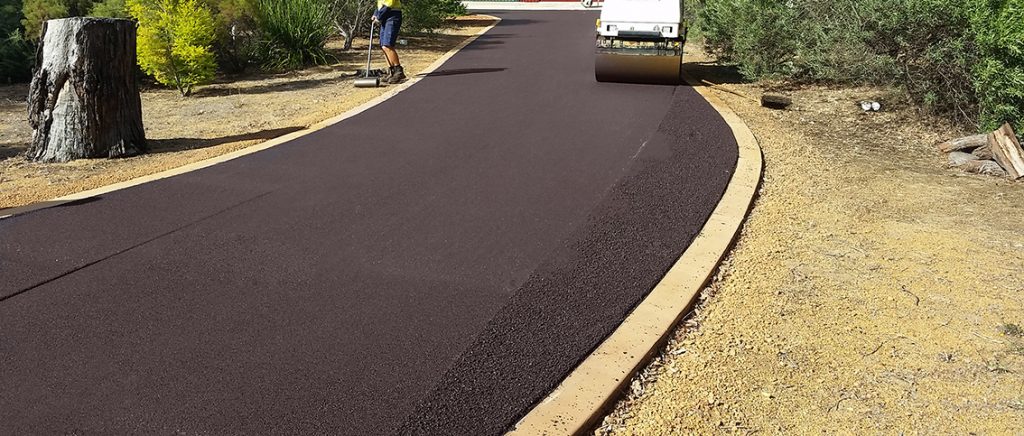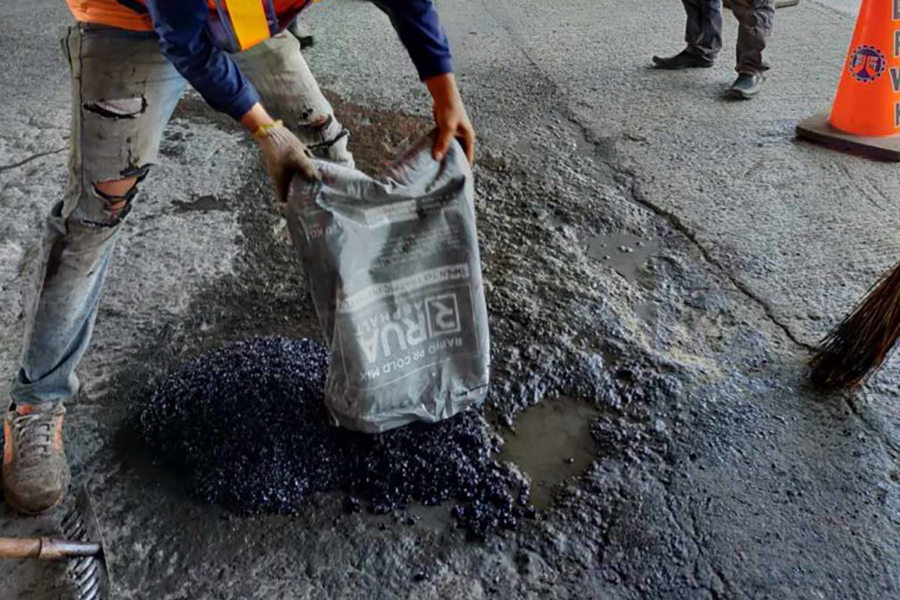Transform Your Building's Landscape with Hot Mix Asphalt Paving Quality
Transform Your Building's Landscape with Hot Mix Asphalt Paving Quality
Blog Article
Opening the Keys of Warm Mix Asphalt Modern Technology
Checking out the depths of warm mix asphalt innovation discovers a world where thorough processes and precise solutions assemble to form our roads and infrastructure. The blend of fillers, accumulations, and binders isn't just a building task yet a critical orchestration of toughness and effectiveness.
Relevance of Hot Mix Asphalt
Hot Mix Asphalt plays a vital role in contemporary facilities growth due to its resilience and cost-effectiveness. As the most frequently made use of leading product for roads, highways, and vehicle parking whole lots, Warm Mix Asphalt supplies an array of advantages that add to its relevance in building and construction tasks.
The longevity of Hot Mix Asphalt stems from its composition, which includes accumulations, binder, and filler products that are meticulously picked and blended to fulfill details efficiency needs. This specific mix leads to a flexible and solid sidewalk that can withstand regular use without significant wear and tear. Warm Mix Asphalt is 100% recyclable, more improving its sustainability and environmental benefits. On the whole, the relevance of Warm Mix Asphalt in facilities development can not be understated, as it proceeds to be a keystone of contemporary construction techniques.
Elements of Asphalt Mixes
The structure of asphalt mixes consists of thoroughly selected aggregates, binder, and filler materials that are crucial for attaining details performance needs. Aggregates are the main component of asphalt blends, offering toughness and stability. The binder, typically asphalt or asphalt concrete, holds the accumulations together and provides flexibility and durability to the mix.
The combination and proportion of these parts play a significant function in determining the high quality and efficiency of the asphalt mix. Designers carefully make the mix to meet specific demands, taking into consideration elements like website traffic volume, climate conditions, and pavement life expectancy. Correct option and balancing of aggregates, binder, and fillers are important for creating sturdy, long-lasting asphalt pavements.
Mixing and Production Strategies

Once the aggregates are picked, the binder, typically asphalt cement, is included in bind the materials together. The binder's quality and amount substantially impact the mix's versatility, strength, and resistance to environmental aspects. In addition, fillers like moisturized lime or Portland concrete may be integrated to improve particular features of the asphalt mix, such as its workability or wetness resistance.
During production, the aggregates and binder are heated, commonly between 250-325 ° F(121-163 ° C ), to assist in blending and guarantee proper finish of the aggregates. The mixing procedure should be thorough to achieve a homogeneous combination that advertises the preferred performance characteristics of the asphalt. Different strategies, such as batch blending or drum blending, are employed to attain consistent and premium asphalt mixes for building projects.
Factors Affecting Asphalt Performance
Elements influencing asphalt efficiency incorporate an array of variables that influence the resilience, durability, and overall quality of asphalt pavements. One vital element is the high quality of products utilized in the asphalt mix. The kind and resource of accumulations, the binder high quality, and the additives all play a substantial function in figuring out the performance of the asphalt pavement. The gradation of aggregates is important as it affects the mix's resistance, workability, and security to breaking and rutting.

Layout factors to consider, such as pavement thickness and drain, are crucial in making sure the long-term efficiency of the asphalt pavement. By very carefully considering these elements, professionals and engineers can optimize asphalt efficiency and enhance the service life of sidewalks.
Lasting Practices in Asphalt Technology

WMA allows for the manufacturing and positioning of asphalt blends at reduced temperature levels compared to traditional hot-mix asphalt, resulting in reduced energy intake and greenhouse gas exhausts. The use of porous asphalt mixes can aid mitigate stormwater drainage issues by permitting water to penetrate via the sidewalk and into the ground, promoting all-natural water filtering and recharge processes.
Conclusion
To conclude, warm mix asphalt technology More Help plays an important function in modern-day facilities advancement as a result of its toughness Full Article and cost-effectiveness. By carefully stabilizing components, using appropriate blending methods, and taking into consideration numerous elements, designers can develop high-grade asphalt mixes that withstand heavy traffic tons and extreme weather problems. Accepting lasting techniques, such as utilizing recycled products and warm-mix innovations, better enhances the ecological kindness of asphalt innovation.
Blending and production methods in warm mix asphalt innovation involve the specific combination and handling of aggregates, binder, and fillers to produce a durable and high-performance asphalt mix.Elements influencing asphalt efficiency encompass a range of variables that impact the sturdiness, long life, and overall top quality of asphalt pavements. Lasting techniques in asphalt technology incorporate various campaigns aimed at decreasing the ecological impact of asphalt production and paving processes. By including reclaimed asphalt sidewalk (RAP) and recycled asphalt roof shingles (RAS) into brand-new asphalt blends, the market can significantly reduce the consumption of raw materials and power, while likewise reducing land fill waste.
WMA enables for the browse around these guys manufacturing and placement of asphalt blends at reduced temperatures compared to typical hot-mix asphalt, resulting in lowered power intake and greenhouse gas exhausts.
Report this page